- Home
- Helen Dunmore
Talking to the Dead Page 2
Talking to the Dead Read online
Page 2
And then I see it. An owl, its wings spread, going down the lane in front of me. So light, it reminds me -
‘The way some birds fly, you’d think they were fucking the air.’
Who said that? I can’t remember. Someone I didn’t expect to have thoughts like that, because I was surprised.
The owl will get there first. I shift my case to the other hand yet again, and plod on.
Chapter Three
But when I get there, Isabel’s asleep. Richard is outside on the broad stone step, sitting on a kitchen chair, a glass of beer in his hand. I see him first not even as a person but as a bulk in the summer gloom, barring the entrance to the house. I get closer and the shadows resolve into Richard, like a puzzle picture. There’s his paper collapsed into a tent beside the chair.
‘She’s asleep,’ he says as soon as he sees me. ‘Better wait till morning now. I didn’t think you were coming so late.’
‘I had to see someone. It went on longer than I expected.’ As usual I’m aware of how feeble my world seems when Richard’s cuts across it. He believes that any meeting which lasts longer than an hour is a waste of time.
‘I saw that picture of yours,’ he says abruptly. ‘In the Telegraph, wasn’t it?’
‘The magazine,’ I say, too quickly.
‘Interesting subject.’
It was a travellers’ wedding over in Ireland, and I’d been there with someone who knew the bridegroom. I’d felt out of place at first, with the drinking and dancing. I don’t drink when I’m working, and I don’t dance either, or not often, not easily. I knew no one there, not even the man who’d brought me, really, but I got talking to some children, a crowd of them sitting on the steps of a trailer. They wanted to look at the camera, the way kids always do. I had a Polaroid with me too, and that made things easy. Even these days, people often don’t want their photos taken, or else they want something back for it, money or other things. I liked that wedding and it showed in the pictures. I liked the way they’d spent money they hadn’t got, and the children were wise to what was going on, the drinking and the fights breaking out, but loving it too, innocently, in the way children can do two things at once. There was a little girl who held out her hand to me for money and one of the other girls slapped her hand down because I’d given each of them their photograph to keep already. She didn’t slap her hard, just a little slap to show she knew what manners were. I took out a ten-pound note and folded it small and wrapped her hand round it and the big girl said she’d make sure her Mammy kept it for her.
‘It was good,’ says Richard. ‘Good composition.’
I smile in the dark. Normally I don’t like it when people who don’t know the subject use its terminology, but tonight I’m touched that he bothered to notice the picture and tell me that it was good. It seems a good omen.
Behind us the house is silent. Where’s the baby?’
‘He’s with Susan. Oh, I forgot, you probably don’t know about Susan. Susan Wilkinson. She’s just finished an NNEB and she can help Isabel out for a couple of months. She’s sleeping here the first couple of weeks, but once Isabel’s better she’ll come every day and sleep at home. Just as well. She’s getting on my nerves already.’
‘Is she good with the baby?’
‘She’s very good.’
We say ‘the baby’ as we did before he was born. He has a name, but to me it doesn’t sound like a baby’s name. He is called Antony. Much later, when it can’t possibly sound like a criticism, I’ll ask Isabel how they came to choose it.
‘I’ll go in,’ I say. He looks up but only moves aside half a foot or so, and I have to step round him, into the kitchen which smells old and cool and slightly fusty, as if it’s a long time since anyone’s cooked here. I pull the string and the light comes on. It’s a big room, floored in stone with a few dirty rag rugs which were here before Isabel came. Then there’s an electric cooker which looks too small for the room, and cupboards, lots of cupboards in which there are sometimes mouse droppings. There is a square table marked by knives, on which there’s a heap of gooseberries in a wooden colander. A range which is never used crouches against one wall. The Wilkinsons lived here in the farmhouse once, before they made enough money selling a hundred acres when land prices were high to build themselves the house of their dreams, two fields away. Once I thought I’d like to make a collage from images of these two houses, like two hands of cards dealt together, but then I knew it would be too easy, and too obvious. Mrs Wilkinson has a fitted kitchen in pale buffed oak. She has good taste.
I love this room. To me it seems entirely beautiful, in the same way as my sister seem entirely beautiful, and yet it makes me angry. I almost don’t want to see it. If this is beautiful, if it calls out in me that small almost sexual shiver I can’t fake, then what does that say about my white-walled attic flat with its windows set in at odd angles, showing other people’s chimney-pots and tiles? I could no more make a kitchen like Isabel’s than I could fly through the air.
Isabel doesn’t own the house. She has it on a lease from the Wilkinsons, who sometimes speak of how they’ll do it up for their sons when they marry. I’ve seen Margery Wilkinson drink her cup of tea in here and look round appraisingly at a window to be double-glazed, or a row of shelves to be torn out. But Isabel lives here as if she’ll live here for ever. That was why she wanted to have the baby in this house, upstairs, in her own bed, so that he’d first open his eyes here. I suppose Richard might want to buy a house, but Isabel won’t leave here until she’s forced out. He must have known that when he married her.
Richard comes in, yawning. He throws the paper on the table and takes a bottle of whisky out of a cupboard, and two small glasses. I shake my head. It’s one of the few drinks I don’t like.
‘You might as well,’ he says. ‘There’s not much chance of a decent night’s sleep otherwise.’
‘Does he cry a lot?’
‘I don’t know what they’re supposed to do, but he seems to cry most of the night, yes. And then there’s Susan pattering about in her pyjamas, so it’s hardly restful. She sees no reason why I should sleep while she and Isabel are awake.’
I take the offered glass. He pours whisky in, not too much, and again I’m pleased. The whisky tastes disgusting, as usual. He pours himself another immediately.
‘That bloody girl’s got religion as well,’ he says.
‘What, Susan?’
‘Mm. She went off to some Jesus camp in the summer and she’s never stopped talking about it since. God help the children she gets her hands on. She’s going to be a nanny, you know.’
‘Well, you don’t need to worry about the baby yet.’
‘No, I suppose not. But it’s a bore for Isabel…’ He frowns. ‘On top of the baby and everything else.’
I look at him. At that moment I realize that I’ve been wrong all the time, ever since Isabel first told me she was pregnant. It was an accident, she said, her lids half-closed, smiling slightly. She sounded unworried, but cool, and of course I believed her. I’m in the habit of believing Isabel’s version. It was as deliberate a composition as a photograph of a begging child, alone on a barren street, carefully angled to exclude the mother three yards away. It wasn’t Richard who had wanted the baby, it was Isabel. What Richard wanted was their life together as it had been before, with no extra presences forced on them. First Susan Wilkinson, and now me. And the baby. He’d do his best for the baby because that was the kind of man he was, but he would have preferred to be alone with Isabel. He didn’t mind that there would be no more children.
I know how he feels, because it is how I feel myself.
I hold out my glass, and he pours in more whisky. The whisky burns a hole in my stomach, as a magnifying glass burns into grass on a hot day. I lean back against the wall and the alcohol skids into my veins.
‘You’ll see her in the morning,’ Richard goes on, unfolding the paper, refolding it with the pages in the right order. ‘I’ll be off at six, so I
shan’t see you.’
‘Oh.’
‘Tell Susan I’m back on Friday. I’ve cut the trip short. She might have forgotten, she’s a bit dozy. I’ve given her a list of phone numbers to pass on to you. Any problem, ring me.’
‘Of course I will,’ I say too quickly, too airily, for he slaps me down. ‘I mean it. If she’s not well again, don’t start thinking you can cope. Get on to me right away.’
He is massive, more adult and more experienced than I can ever be. But he sways slightly, his head down, like an animal being baited by something just out of sight. On the other side of this cold wall there’s a corridor, and then a staircase, and at the top there are seven doors. Behind one of them there’s Isabel, sleeping now. Their bedroom with its smell of marriage which vanishes as soon as Richard goes, and becomes the smell of Isabel again. Her skin, her hair, her oatmeal soap in her bedroom wash-basin, and the clothes she’s taken off hanging on the back of the door. She wears one scent all the time, and although I like it myself I would never buy it. I’ve sprayed it on myself in department stores sometimes, and for a few seconds I’ve become someone else. Not quite Isabel. I’m bad at scents and make-up, bad at clothes. It took me years to realize that it might be easier to do things like shave my legs or make an appointment at a good hairdresser’s than not to do them. It’s always seemed so complicated to me, being a woman. I hear other women talking about ‘my size’ and ‘what suits me’, swopping tales of smears and tests and samples. I’d like to be that confident. I’d like to believe those things were part of me, and I was part of them. Maybe that’s why it suits me to take pictures. No one looks at the person behind the camera.
But I did a series of self-portraits once. It was hard to begin with, but it got easier. In one I was naked. Not naked the way I’d want anyone else to see me, not posing naked or sex naked. Just naked. It was a strange thing to do and at the time I had no idea why I was doing it. But it worked. All the things that make me uneasy broke down into grains of black and white. What I needed to think about were the technicalities. In the end I quite liked looking at those shapes, those angles, and what the light had done. I did justice to my own flesh and blood.
I wonder if Isabel’s really asleep.
Chapter Four
I’m awake at five. I want to pee but I hear Richard moving about, water rushing, doors opening and closing, and then a thin, startled sound which I don’t identify straight away. Of course, the baby. It cries hectically, then suddenly stops. The light is soft and grey. I’ve left my curtains open. This side of the house doesn’t look out over Isabel’s garden, but over the pond and the barns. A family of ducks sails out, the ducklings bobbing with minute confidence in their mother’s wake. There’s grey dew on the grass where the ducks have walked and left their footprints.
A door slams downstairs. Richard, going. I hear his footsteps crunch round to the patch of gravel where they keep their car. I lean out, feeling the cool on my arms, still wanting to pee. The car door clunks, the engine turns, the tyres spit gravel and he’s gone. I listen for a long time to the whine of the engine going down the track slowly, in second gear.
I step out into the corridor. There’s no sign of Susan and no sound of the baby now. Isabel’s door is closed. I go into the bathroom where a huge mahogany-seated lavatory squats by the bath. I pee quietly, and pull the long chain. Water roars over the crazed porcelain, sluicing the name Victrix. Water seethes in the cistern, and then silence replaces noise again. They must all be asleep. I look at my watch. Five past six.
I wash my face and hands in cold chalky water, and then creep back to the bedroom, pull on my jeans and the red tank top I’ve washed out and dried overnight. It’s damp, but that feels nice. It’s going to be hot again. There is heat everywhere this summer, rolled up overnight like a blanket. I could go out. To the garden, perhaps, to see how it’s changed since I was here last time. Or through the farmyard on to the thread of a path that leads up to the Downs. But I’m here to look after Isabel, who may be sleeping or may be lying down flat on her back, staring out of the window, a single vertical line cut into her forehead. That line comes when she has pain. I step back into the corridor, tasting its cool smooth boards with my bare feet.
‘Nina? Nina, is that you?’
Our mother wouldn’t let us shout from room to room. ‘If you want to say something to Isabel, go and find her first.’ I remember staring in wonder at a schoolfriend who bawled ‘Mu – um! I’m home!’ as she opened the front door. If we wanted to speak to our mother, we could go in and speak to her. We rarely did. The door of her studio was shut, and behind it she was working. If we went in she would glance up, her slippery hands controlling the live clay by touch, and most of the things we were going to say would seem not worth saying.
‘Nina?’
I open the door. There she is, sitting up in bed. ‘Isabel!’
‘Come on in, darling. Shut the door or I’ll have Susan back again.’
She smiles, putting the paper she’s writing on to one side, but keeping the pen in her hand. She’s got her reading glasses on, the wire-rimmed ones she got in a second-hand shop. She can see through them perfectly, she says. I go up to the bed, feel myself smiling down at her, a big, speechless smile that stretches wider and wider until I don’t know what to do with it. Isabel holds out one hand and lifts her face to be kissed, shutting her eyes.
I kiss her gingerly, on the cheek. She’s smooth and warm as always, but I’m afraid to jolt her and start up the pain which I know is hidden somewhere under the bedclothes. She opens her eyes and screws up her nose.
‘That wasn’t much of a kiss. Lovely top, Nina. You ought to wear colours like that more, instead of all that black.’
I glance down at what she’s writing. Three or four sheets of it, closely covered. She sees me looking and says, ‘I was writing to Edward. He’s coming to stay the day after tomorrow. He and Alex have had another bust-up.’
I stare at Isabel. ‘Hasn’t he got more sense than to come here now, when you’re still ill? Who does he think’s going to look after him?’
She smiles and shrugs. ‘You know Edward. He doesn’t take much looking after. He just wants to get away for a while and try to work out what to do. I had a long letter from him yesterday.’
‘Does Richard know?’
‘Of course.’
When I first came in I thought she looked well, but now I can see how pallid she is under her usual summer tan. Isabel doesn’t easily show tiredness, or illness. She shifts her legs under the cotton cover.
‘I’m supposed to keep doing these exercises,’ she explains, ‘to stop getting blood clots. It’s lucky no one tells you about all this beforehand. I shouldn’t tell you.’ There’s this fiction between us, that I might start wanting children some day.
‘Is it all healing up OK?’ I ask cautiously. Isabel laughs.
‘Don’t worry, Neen, I’m not going to show you. It’s not as bad as you’d think. The midwife says I’m a good healer.’
When she was pregnant Isabel talked about the midwife a lot. Midwife sounded like one of those words which ought to be archaic, but isn’t. I imagined her earthy, full of wisdom, her eyes kind, her hands cool, her hair streaked with grey: the way Isabel wanted her to be, perhaps. But I met her once and she was a wispy fair girl driving a Ford Fiesta. Isabel and I were in the habit of exaggerating our own lives, and each other’s. I was London, a series of small flats with someone living below who played ‘Do You Really Love Me?’ with the speakers hanging out of the windows, and my phone ringing at midnight. I was work and safe sex but lots of it and cruising the streets for a late-night chemist, and crises and spending too much money, and being dissatisfied. What Isabel was took longer to explain. All this began as a game we played, the kind of game sisters play when they need to find out how different they are. But it turned into a game that played us.
‘I don’t mind if you show me,’ I say.
Isabel raises her eyebrows. She pushes do
wn the cover, and pulls up her nightdress. They’ve just taken off the dressing and the clips,’ she says. She’s right, it’s not as bad as I’d imagined. The scar is a reddish-purple line, with what look like rows of teethmarks above and below it. ‘That’s where the clips were,’ says Isabel, ‘and that’s where they put in the drain.’ She looks down at her scar, absorbed. ‘They keep going on about how I’ll still be able to wear a bikini.’
Her pubic hair has been shaved off and there are deep bruises on her stomach. ‘The things they think of,’ she says.
What’s he like?’
A secretive expression crosses Isabel’s face. I know it well. She always looked like this when she first made a new friend whom she didn’t want me to meet. ‘Not at all like I expected,’ she says. ‘You’ll see.’
‘I can’t wait to see him.’
‘It’s wonderful when he’s asleep. Susan’s taken him because it’s too light in here. He thinks it’s morning. But I’ll have to feed him again at seven.’ She frowns and pushes her glasses back up her nose.
‘Just tell me what you want doing. I’ve come to help.’
Isabel’s face lightens. ‘Oh Neen, I’ve been thinking about it half the night. You know I’d put in three new apple trees in that bed at the bottom of the south wall? Richard won’t have watered them, and they need gallons in this weather. Could you run the hose down there and let them soak?’
‘Of course,’ I say. And then, ‘It’s a pity Richard took the car. I could easily have driven him to the airport and then we’d have had it while he was away.’
‘I didn’t even think of it,’ says Isabel, ‘I keep forgetting you can drive.’ I can drive, Isabel can’t I learned five years ago when I started getting commissions which meant travel.

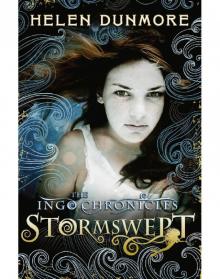 The Ingo Chronicles: Stormswept
The Ingo Chronicles: Stormswept The Deep
The Deep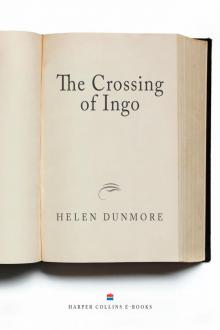 The Crossing of Ingo
The Crossing of Ingo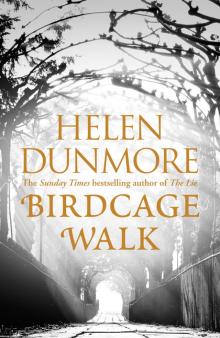 Birdcage Walk
Birdcage Walk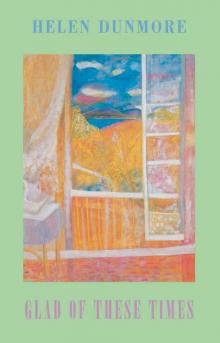 Glad of These Times
Glad of These Times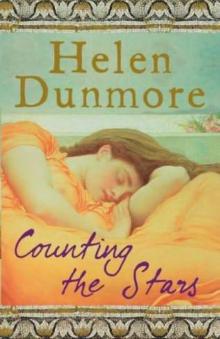 Counting the Stars
Counting the Stars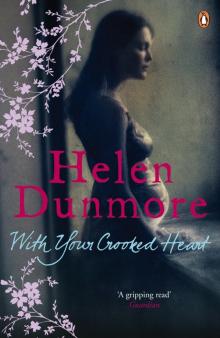 With Your Crooked Heart
With Your Crooked Heart Burning Bright
Burning Bright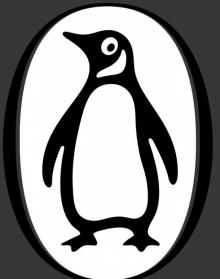 House of Orphans
House of Orphans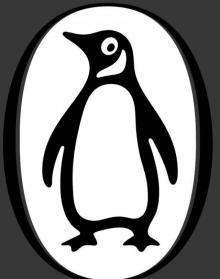 Mourning Ruby
Mourning Ruby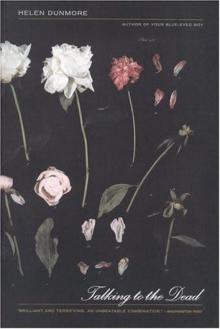 Talking to the Dead
Talking to the Dead Exposure
Exposure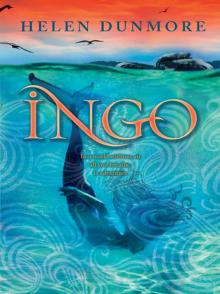 Ingo
Ingo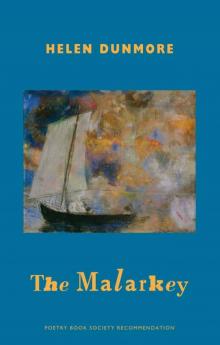 The Malarkey
The Malarkey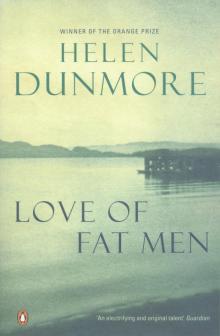 Love of Fat Men
Love of Fat Men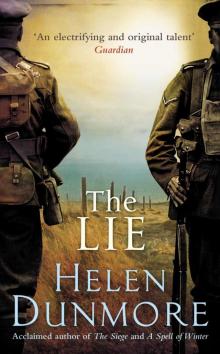 The Lie
The Lie The Siege
The Siege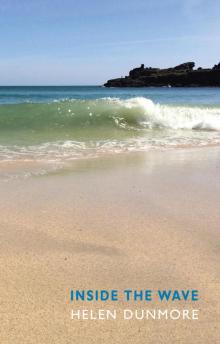 Inside the Wave
Inside the Wave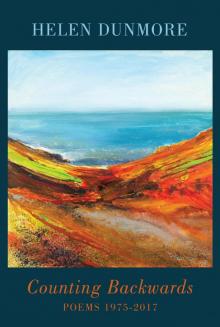 Counting Backwards
Counting Backwards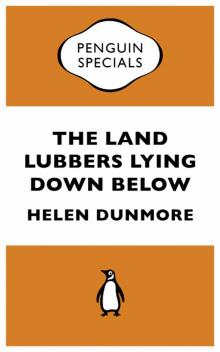 The Land Lubbers Lying Down Below (Penguin Specials)
The Land Lubbers Lying Down Below (Penguin Specials)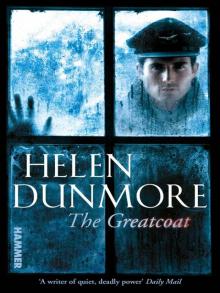 The Greatcoat
The Greatcoat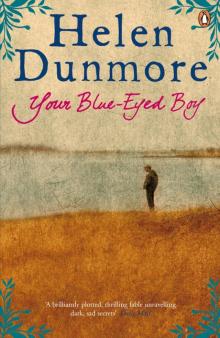 Your Blue Eyed Boy
Your Blue Eyed Boy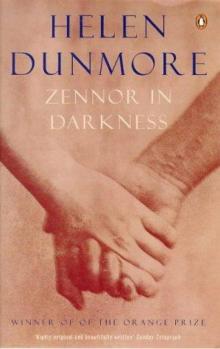 Zennor in Darkness
Zennor in Darkness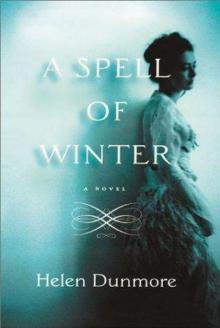 Spell of Winter
Spell of Winter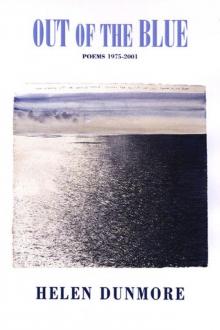 Out of the Blue: Poems 1975-2001
Out of the Blue: Poems 1975-2001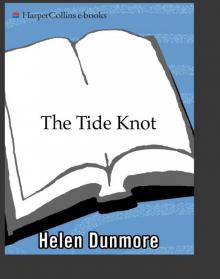 Tide Knot
Tide Knot The Betrayal
The Betrayal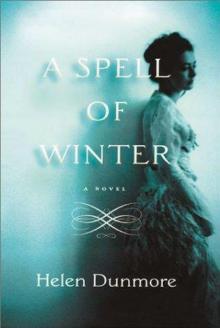 A Spell of Winter
A Spell of Winter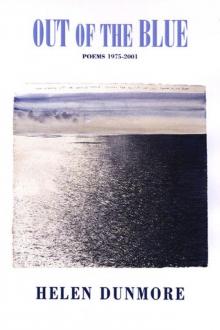 Out of the Blue
Out of the Blue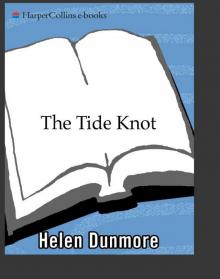 The Tide Knot
The Tide Knot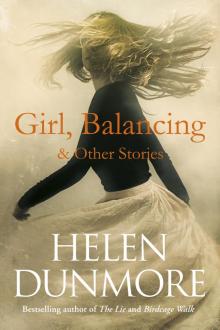 Girl, Balancing & Other Stories
Girl, Balancing & Other Stories Betrayal
Betrayal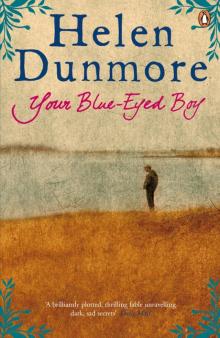 Your Blue-Eyed Boy
Your Blue-Eyed Boy